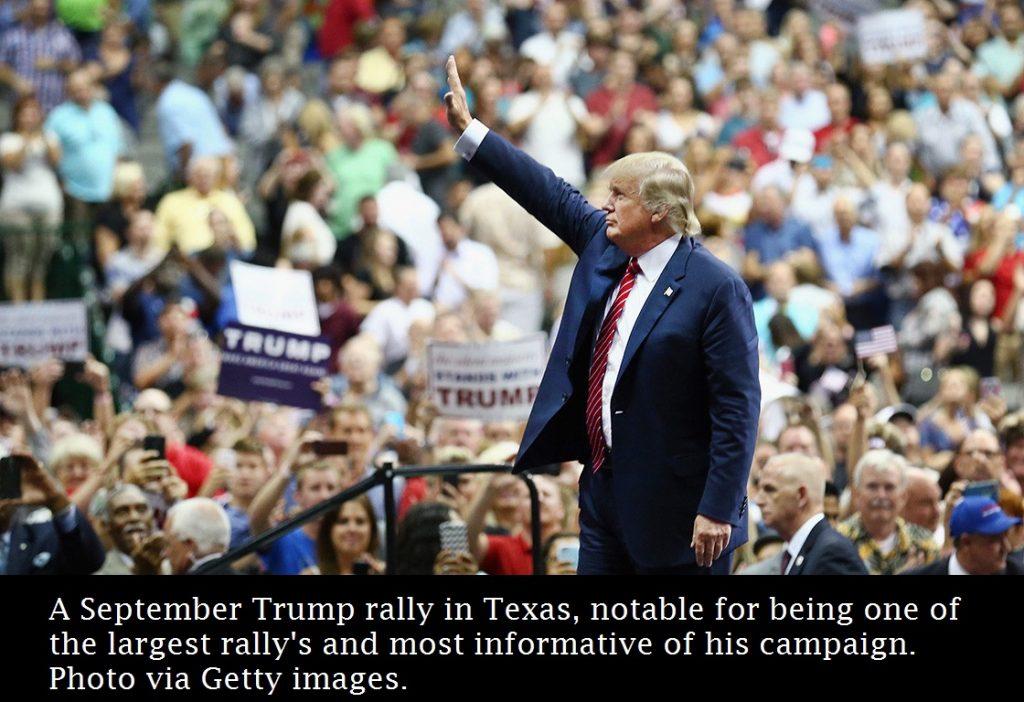Questioning Trump’s ability to deliver on campaign promises
January 18, 2017
As inauguration day looms over a generally dissatisfied public, the reality of Donald Trump as president slowly comes to fruition. With a new, upcoming president that has the grandeur and charisma of Trump, it becomes increasingly important to make sure his money is where his mouth is. Here are a few of Trump’s most gravitating claims and what actions he’s taken in regards to those.
The wall: Trump’s promise of a “great wall” has been pivotal in establishing his stance on immigration and specifically the illegal immigration between Mexico and the United States. It is a polarizing promise of a safety net for job security and justice to those who support it, and to opponents, a multi-billion dollar waste. But what has Trump done to secure this wall? Some may remember Trump originally called for Mexico to pay for the wall. Since the start however, Trump has had to compromise quite a bit from this place of strength.
In mid-October, Trump casually said during a rally that Mexico would “reimburse” the U.S. for the wall. A recent tweet from Trump says that “The dishonest media does not report that any money spent on building the Great Wall (for sake of speed), will be paid back by Mexico later”, a far cry from his original stance. More recently, according to CNN, Trump’s transition team has been calling for Congress to begin including funds for the wall as a part of their budget amendments by at least April, allocating billions of dollars to the wall.
Cleaning up corruption in Washington: As part of Trump’s 100-day plan, his first 6 points are categorized as helping to “clean up the corruption and special interest collusion in Washington, DC”, which strongly ties back to his campaign and his anti-establishment appeal. Trump pushed this rhetoric for much of the election, notably in a Virginia rally, where Trump said “Hillary Clinton is the voice for global special interests,” while he was “running to be the voice of the forgotten men and women” (quotes courtesy of a transcript from his Roanoke rally from Breitbart). It is obvious that Trump wanted to appeal to the dissenters among the voters, but how close has he stayed to this narrative?
For one, Trump very famously appointed Rex Tillerson, former CEO of global oil giant Exxon Mobil, as the Secretary of State. This appointment obviously brought up issues of conflict of interest, with a large, politically-inexperienced CEO being chosen to occupy one of the most powerful American political positions. While not directly in violation of any anti-nepotism laws according to a January Senate hearing, a former mega-rich businessman appointing another mega-rich businessman does not sound anti-establishment on paper.
Likewise, Trump recently appointed his son-in-law, Jared Kushner, as a White house adviser. This move, the appointment of a family member, is unseen in modern America and faintly smells of oligarchy. Once again, however, Kushner was told by legal counsel that this appointment was not in violation of anti-nepotism laws and has yet to receive much challenge from political leaders.
Regardless of your feelings on the campaign, it can be seen that president-to-be Trump has made some major compromises on the pivotal aspects of his bid for president. It remains to be seen, but like the ship of Theseus, this campaign may soon be unrecognizable from it’s former self.




